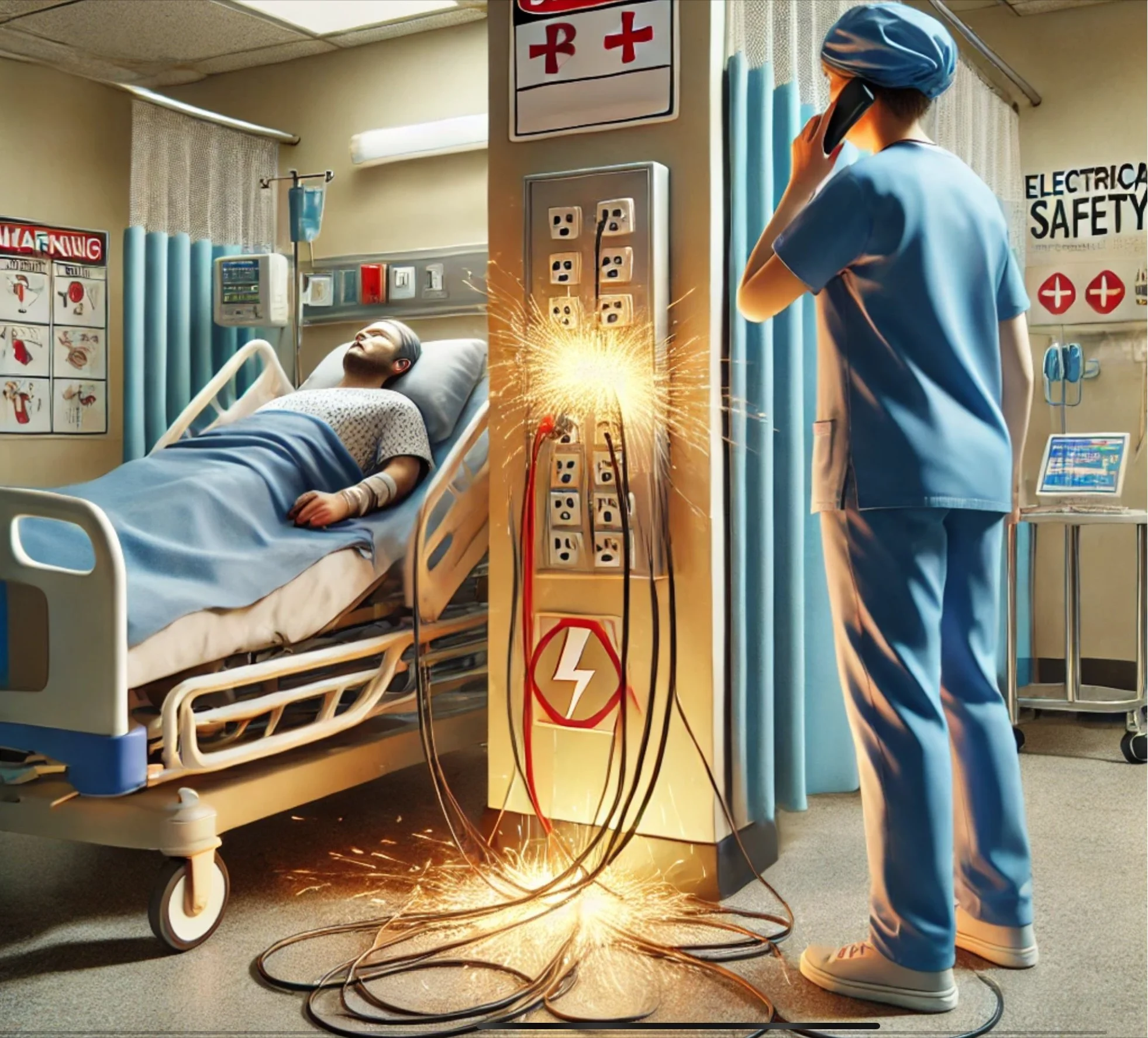Summary of Fire and Electrical safety Guidelines for Nursing Staff: Free NCLEX – RN Resource with PDF
Fire Safety for Nurses: Essential Guidelines
Fire safety in healthcare settings is crucial to ensure patient and staff well-being. Nurses play a vital role in fire prevention, preparedness, and response. Here are key fire safety principles every nurse should follow:
1. Know the Fire Response Plan (RACE)
· Rescue: Move patients and staff away from danger.
· Alarm: Activate the fire alarm system.
· Contain: Close doors and windows to prevent the spread of fire.
· Extinguish or Evacuate: Use a fire extinguisher if safe; otherwise, evacuate.
2. Use Fire Extinguishers (PASS Method)
· Pull the pin.
· Aim at the base of the fire.
· Squeeze the handle.
· Sweep side to side.
3. Prevent Fire Hazards
· Keep hallways and exits clear.
· Store flammable materials properly.
· Do not overload electrical outlets or use damaged cords.
4. Know the Evacuation Plan
· Identify fire exits and escape routes.
· Assist immobile patients safely. If the patient is on life support, use a manual resuscitation bag or bag valve mask to provide breaths.
· Follow hospital fire drill protocols.
Electrical Safety for Nurses: Best Practices in Healthcare Settings
Electrical safety is crucial in healthcare environments to protect patients, staff, and equipment. Nurses must be aware of potential electrical hazards and take preventive measures to ensure a safe workplace.
1. Inspect Equipment Before Use
· Before plugging in medical devices, check for frayed wires, damaged plugs, or exposed cords.
· Do not use malfunctioning or sparking equipment—report and tag it for maintenance.
2. Prevent Overloading Outlets
· Use only one high-power device per outlet to avoid circuit overload.
· Avoid using extension cords unless approved for medical settings.
3. Keep Electrical Devices Away from Water
· Ensure hands and surfaces are dry before handling electrical equipment.
· Never place cords or devices near sinks, IV fluids, or wet areas.
4. Know How to Respond to Electrical Incidents
· Unplug faulty equipment immediately and report it.
· In case of electrical shock, do not touch the person, unplug the device, or immediately turn off the power source and seek medical help.
· Follow the RACE and PASS protocols if a fire occurs due to electrical issues.
5. Follow Hospital Safety Protocols
· Use only hospital-approved medical devices.
· Participate in electrical safety training and drills.


